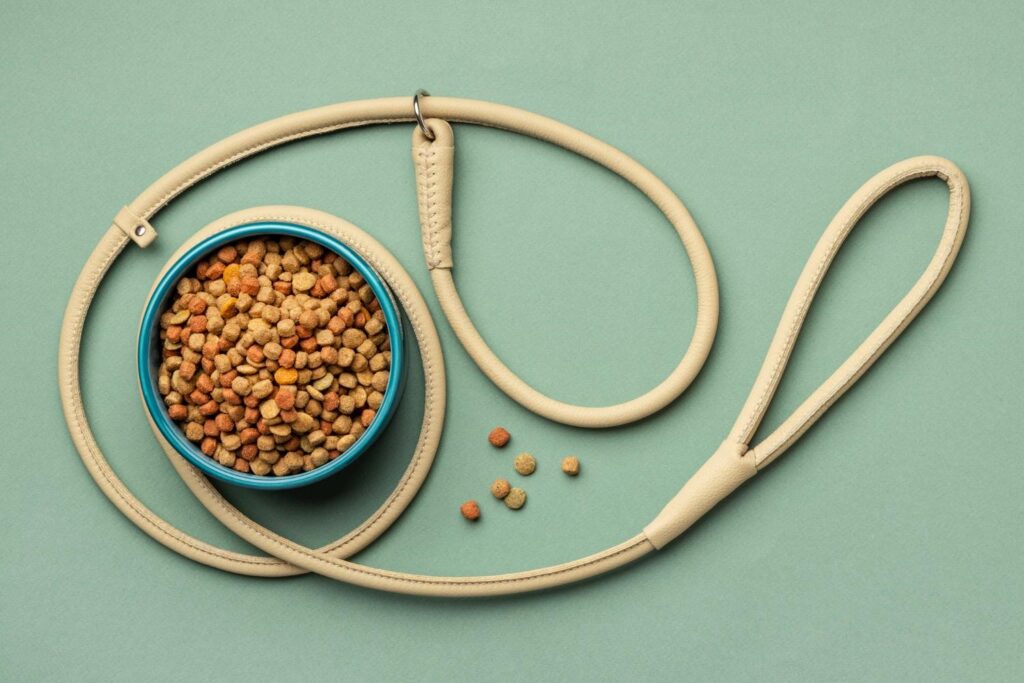How to Choose the Right Pet Food? Pets are a part of our families, just like any other family member.
The health and well-being of our pets depend upon the food they consume. As a responsible pet parent, providing the proper nutrition to your furry friend is important.
Here, we will discuss vet food, explicitly focusing on veterinary diet food, ensuring that your pets receive the best care possible.
Table of Contents
What is Pet Food?
Pet food has a wide range of products produced to meet the nutritional needs of different pet animals.
Different pet food options are available in the market to meet your pet’s needs. However, not all veterinary diet foods are produced with the same ingredients.
Understanding the differences in animal food and finding the right one for your pet is essential for your pet’s healthy lifestyle.
Importance of Choosing the Right Pet Food
The food your pet consumes significantly affects their overall health and longevity.
A balanced diet provides essential nutrients that support bodily functions, maintain a healthy weight, and prevent various diseases.
Choosing high-quality veterinary diet cat food ensures your furry companions receive the necessary vitamins, minerals, and proteins to thrive.

Understanding Veterinary Diet Food
Veterinary diet food for pets is specifically formulated to address various health issues in pets.
Veterinarians prescribe veterinary diet food to manage conditions such as:
- Obesity
- Allergies
- Gastrointestinal disorders
- Urinary tract problems
These specialized diets are made to meet the unique nutritional requirements of pets with specific health concerns.
Different Types of Pet Food
Many types of vet food are available in the market, but each comes with its own advantages. The best food for your pet will depend on their needs and preferences.
Here are some of the most common types of pet food:
Commercial Pet Food
Pet stores, supermarkets, and online retailers offer commercial pet food. While convenient, not all commercial pet food meets the nutritional standards for optimal pet health.
It is important to inspect the labels and choose from reliable and reputable brands that ensure the ingredients’ quality.
Veterinary Diet Food
Veterinary diet food is available by prescription and is typically recommended for pets with medical conditions.
These Vet Diet Foods contain medicinal ingredients such as high-fiber content for digestive health or limited ingredients for pets with food sensitivities.
Homemade Pet Food
Some pet parents prepare homemade meals for their companions, believing it offers greater control over ingredients and quality.
While homemade animal food can be nutritious when well-balanced, consulting with a veterinarian is essential to ensure it meets your pet’s specific dietary needs.
Benefits of Veterinary Diet Food
Veterinary diet food offers several benefits for pets with health issues. These specialized diets can help manage chronic conditions, alleviate symptoms, and improve overall quality of life.
Additionally, veterinary diet food may contain ingredients tailored to support specific organ functions or address nutrient deficiencies.
Factors to Consider When Selecting Pet Food
Several factors should be considered when choosing veterinary diet cat food, including your pet’s age, breed, activity level, and any existing health conditions.
Selecting food that aligns with your pet’s nutritional needs and preferences while avoiding ingredients that may trigger allergies or sensitivities is essential.
Common Misconceptions About Pet Food
Several misconceptions surround pet diet food, including the belief that all commercial brands are created equal or that homemade diets are constantly superior.
It’s essential to separate fact from fiction and rely on evidence-based information when deciding your pet’s nutrition.
Tips for Feeding Your Pet
Feeding your pet is much more than just filling their bowl. Portion control, feeding schedules, and mealtime can impact your pet’s health and behavior.
It is important to maintain a feeding routine that promotes healthy eating habits and prevents overfeeding or obesity.
Key Differences Between Pet Food and Veterinary Diet Food
While pet food and veterinary diet food are designed to nourish pets, there are significant differences.
Veterinary diet food is formulated to work on specific health issues under the guidance of a veterinarian, whereas commercial pet food is intended for the general nutrition of your pet.
th.
How to Transition Your Pet to Veterinary Diet Food
Transitioning your pet to veterinary diet food should be done gradually to prevent digestion issues.
Start by mixing small amounts of the new food with their current diet, and over time, increase the proportion over several days until they’re fully transitioned.
Importance of Regular Vet Check-ups
Regular veterinary check-ups are essential for monitoring your pet’s health and addressing dietary concerns.
Your veterinarian can provide valuable guidance on nutrition, recommend appropriate nutritional changes, and monitor your pet’s response to veterinary diet food over time.
Conclusion
Choosing the right pet food is essential for maintaining the health and happiness of your pet.
Veterinary diet food offers specialized nutrition to address specific health issues, ensuring your pet receives the care it deserves.
By understanding the importance of nutrition and working closely with your veterinarian, you can provide the best possible diet for your beloved companion.
Looking for a reliable source to buy pet food? DVM Central is the best animal health supply Marketplace. They have a diverse range of animal health care supplies. Visit DVM Central and give your pet a healthy lifestyle.
FAQs
Are homemade diets safe for pets?
Homemade diets can be safe and nutritious when they are balanced and supplemented, but it’s important to consult with a veterinary nutritionist to ensure they meet your pet’s needs.
Can I mix commercial pet food with veterinary diet food?
Mixing commercial pet food with veterinary diet food may dilute the therapeutic benefits of the latter, so it’s best to follow your veterinarian’s recommendations.
Are there any alternatives to veterinary diet food?
Supplements or dietary modifications may be recommended as alternatives to veterinary diet food. Still, discussing these options with your veterinarian is essential to ensure they’re safe and effective.

Hi there! My name is Koushik; I am a cat lover. I specialize in writing about pet care & food. I have a wealth of knowledge on cat food niches and related subjects. I have worked in the pet industry for over 5 years and am passionate about helping cat owners provide the best care for their furry friends. With knowledge of cat food and nutrition, I aim to share their insights and help cat owners navigate the world of cat food niches. I enjoy playing with my two cats, reading, and exploring new cat food brands in my free time.